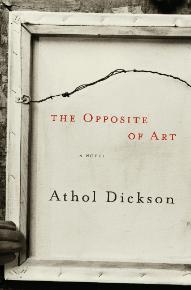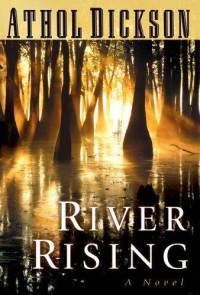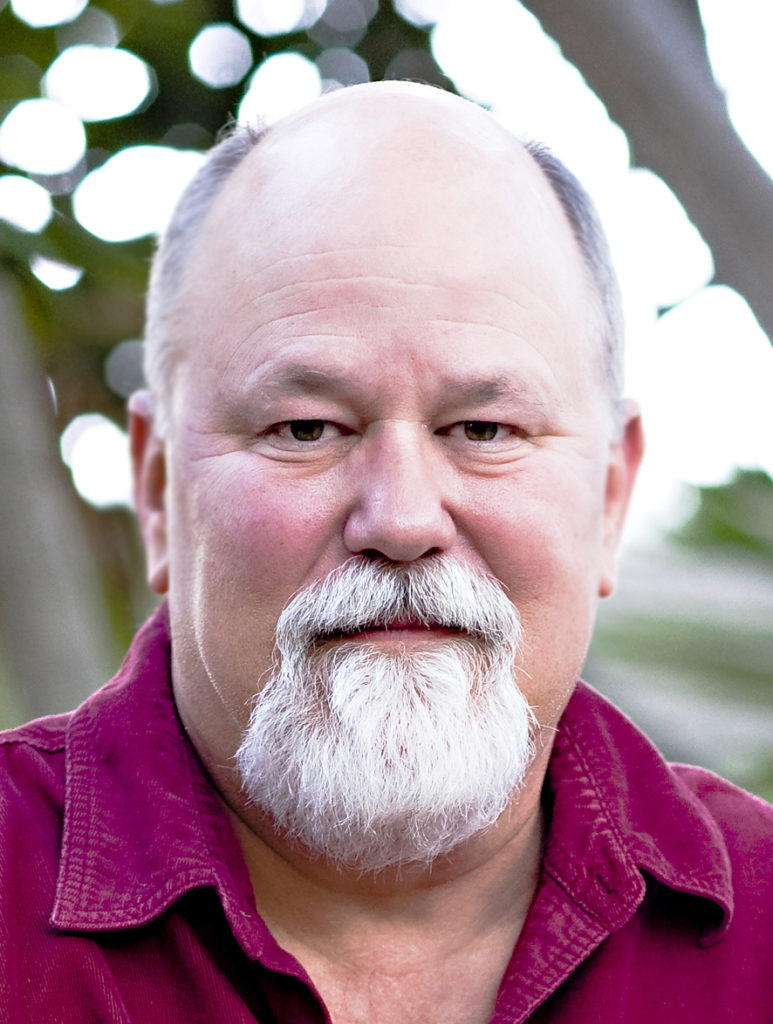No Such Thing As Miracles
 For the last few years I’ve been writing in a little backwater of a genre called “magical realism.” Most people aren’t sure what it is, but some think it’s a kind of speculative fiction.
For the last few years I’ve been writing in a little backwater of a genre called “magical realism.” Most people aren’t sure what it is, but some think it’s a kind of speculative fiction.
According to Wikipedia, speculative fiction is “an umbrella term encompassing the more fantastical fiction genres, specifically science fiction, fantasy, horror, supernatural fiction, superhero fiction, utopian and dystopian fiction, apocalyptic and post-apocalyptic fiction, and alternate history in literature . . . .”
With its roots sunken deeply into the supernatural, magical realism definitely fits that definition, but it didn’t make the list of examples. Part of the reason may be the way it deals with the supernatural. It’s similar enough to be confused with other speculative fiction genres, yet different enough to be left out.
Of course, there are no rigid lines between most genres. One person’s science fiction may be another person’s fantasy. But in general terms when the supernatural occurs in science fiction it’s usually explained in natural terms. Sometimes it’s a natural part of an alternative universe (although I often find it difficult to tell the difference between alternative universe type science fiction and fantasy). More often what seems supernatural in science fiction is the extension of actual scientific trajectories far into the future. Either way, the apparently supernatural is brought down to earth, so to speak, through some sort of rational explanation. In fact, a big part of the fun with science fiction comes from exploring the technology or systems that make the fantastic events and conditions of the novel possible.
Again remembering that the dividing lines between genres are not always clear, generally speaking we can say in fantasy novels the supernatural is not explained, at least not in the natural or rational terms we find in science fiction. In fact, it’s the inability to offer a rational explanation that makes a novel fantasy. Fantasy is fantastic, which is to say, “not real; conceived or seemingly conceived by unrestrained fancy; so extreme as to challenge belief.” (Webster’s) There’s usually no interest in explaining the fantastic things that happen in a fantasy novel. In fact, explanations might spoil the fun of exploring the unrestrained creativity that a fantasy novel delivers to its fans.
Magical realism gets lost in the gray area between science fiction and fantasy. It borrows something from both genres, while lacking aspects of each. Magical realism presents the supernatural as a matter of fact, almost as an everyday event, much as science fiction does. But like pure fantasy, magical realism refuses to explain itself. You’re reading a story that seems to be taking place in the real world, then suddenly the hero walks off the edge of a cliff and just keeps going, apparently immune to the law of gravity. But the author doesn’t mention gravity. The author doesn’t even remark on the strangeness of a person walking in mid air. The author simply continues telling the hero’s story as if nothing supernatural is happening, and if this defiance of gravity is a natural thing happening in the real world. That’s magical realism.
I think magical realism is a perfect fit with Christian fiction, because when you think about it, the description I just wrote almost perfectly conforms with the way the Bible deals with the supernatural. Think of the very first worlds in the Bible: “In the beginning, God created . . . .” The author of Genesis doesn’t make the slightest effort to explain who God is, or how he created the universe. We’re simply told this fantastic thing occurred—something out of nothing—as if it was the most natural thing in the world.
Another example: for forty years in the Sinai desert an entire nation is kept alive by bread given to them directly from heaven, one omer per person, yet the story ends with words so dry and matter of fact that they might have been a margin note in a textbook: “An omer is one tenth of an ephah.” That’s it. The end. What could be more natural?
The Bible’s stories about Jesus are particularly reminiscent of magical realism. Jesus touches two blind men’s eyes and the Bible simply says, “Immediately they received their sight and followed him.” Sight is given to the blind, but there’s no hoopla at all. Simply, “they followed him,” end of story. And in another place, when Jesus tells his disciples to pass out a few handfuls of bread and fish to five thousand people, the Bible says simply, “They all ate and were satisfied.” The story is presented as if creating something out of nothing and then using it to feed thousands of people happens every day.
Which, of course, it does.
 It was while thinking about miracles, and particularly Jesus’ statement that all it takes to move a mountain is faith the size of a mustard seed, that I got a glimmer of the idea that turned into my first Christy Award-winning novel, River Rising. The question I asked myself was, “What would daily life look like for someone with that kind of faith?”
It was while thinking about miracles, and particularly Jesus’ statement that all it takes to move a mountain is faith the size of a mustard seed, that I got a glimmer of the idea that turned into my first Christy Award-winning novel, River Rising. The question I asked myself was, “What would daily life look like for someone with that kind of faith?”
The answer surprised me. I decided if miracles were a normal part of everyday life, then miracles would no longer be miracles, at least not by the usual definition of the term. To work miracles on a routine basis would mean miracles were normal. Natural. But then of course, they wouldn’t be miracles, would they? So I wrote a story about a man like that, a man named Hale Poser, and as a result of the novel’s premise it ended up being a pretty fair representation of the magical realism genre. The supernatural became natural. Hale Poser was a man who might walk off a cliff and keep walking and not even notice, and because he did that kind of thing routinely, for him, it would be no miracle. Sort of like another man might walk on water.
Now, having several magical realism novels under my belt, I have to wonder what it says about us as a people that we feel compelled to rigorously separate speculative fiction genres from other forms of fiction which we consider more realistic. It’s a way to quickly communicate a novel’s format or style to readers, of course, so on that level there’s a practical reason. But on a deeper level it’s an interesting place to draw a line, because of course the fantastic does happen, all day every day. Water turns to ice. Electricity runs through wires. Little animals emerge from the bodies of bigger ones. People somehow find the strength to forgive each other. No one really understands how these things happen. All around us every moment of our lives is magical, if by that we mean life is constantly influenced and infused by the supernatural.
So it seems to me there’s nothing really speculative about this way of writing fiction. IF anything, in mentioning the supernatural I’m writing about the world as it actually is, because the more true-to-life a story really is, the more the “realism” in a story will seem “magical.”
Athol Dickson is a novelist, teacher, and independent publisher. His novels transcend description with a literary style that blends magical realism, suspense, and a strong sense of spirituality. Critics have favorably compared his work to such diverse authors as Octavia Butler (Publisher’s Weekly), Hermann Hesse (The New York Journal of Books) and Flannery O’Connor (The New York Times). One of his novels, River Rising, is an Audie Award winner, and three have won Christy Awards. His most recent novel, The Opposite Of Art, is a mystical story about pride, passion, and murder as a spiritual pursuit. Athol’s next release will be a “Christy award collection” of his four best selling novels, updated and with new forewords. Each of the novels was a Christy finalist. Athol lives with his wife in southern California. Please visit his website at www.AtholDickson.com, and like his Facebook fan page.





























This story sounds like something I might check into. I have read one magic realism novel (Bless Me, Ultima) and one novel by a Christian author that has magic realism tendacies (Peace Like a River by Leif Enger). It’s not a genre I have found often, but might be interested in reading more of.
“But on a deeper level it’s an interesting place to draw a line, because of course the fantastic does happen, all day every day. Water turns to ice. Electricity runs through wires. Little animals emerge from the bodies of bigger ones. People somehow find the strength to forgive each other. No one really understands how these things happen. All around us every moment of our lives is magical, if by that we mean life is constantly influenced and infused by the supernatural.”
I love this! I think about this all the time, about the miracles that are happening around me. Like leaves turning colors, how awesome and scary tornadoes are (I live in Kansas), and the way soap is able to make molecules of dirt cling to it rather than me and wash away. And then I bow my head and realize how absolutely awesome God is that He came up with all this stuff!
“Most people aren’t sure what it is” – whatever it is, you’re adept at it. I thoroughly enjoy your books.
River Rising is my favorite.
I agree with all you’ve said. Good to hear from you!
Excellent post, Athol. My latest speculation has been about what it would look like if all of us who believe God is sovereign would act like it. Or who believe He has forgiven us would forgive in like kind. How would we pray if we prayed like Christ? How would our world change if we prayed more for lost sinners than for aches and pains? Not that we should stop the one, but should emphasize the other. Anyway, thanks for stirring up these thoughts anew!
Becky
I really like River Rising, too. It’s such a wonderful work. And you’ve got a lot of good points here about miracles and such. So what do you really believe in? Thank you very much for sharing this wonderful post. And by the way, you’ve got a very brilliant blog.